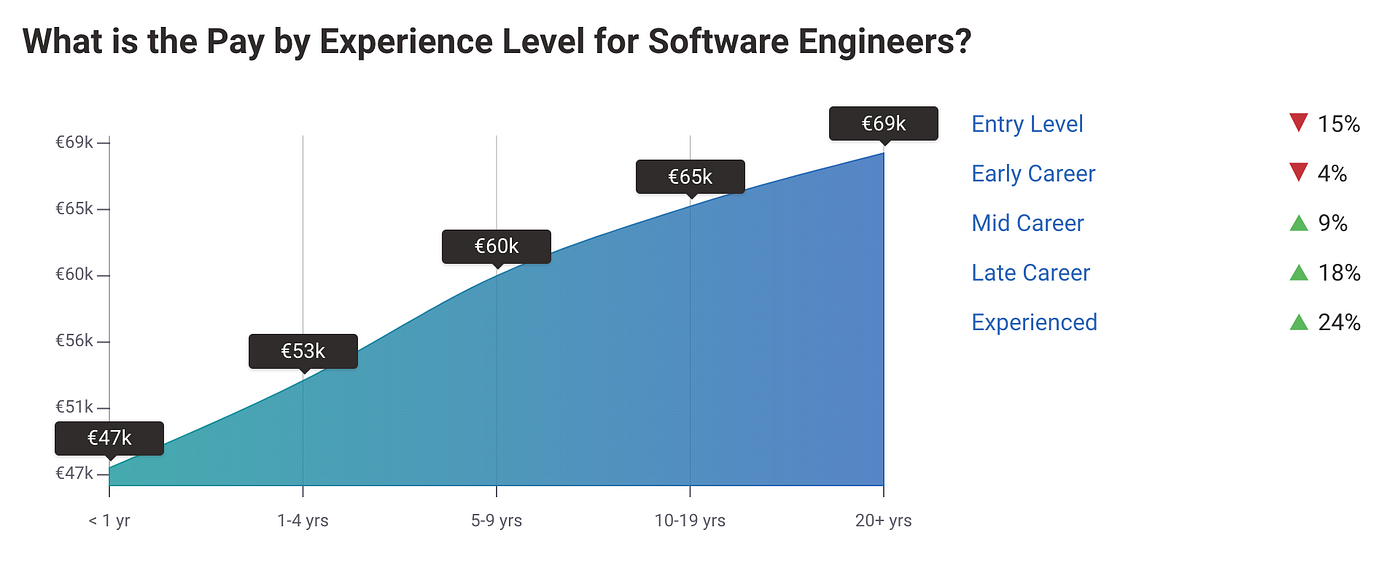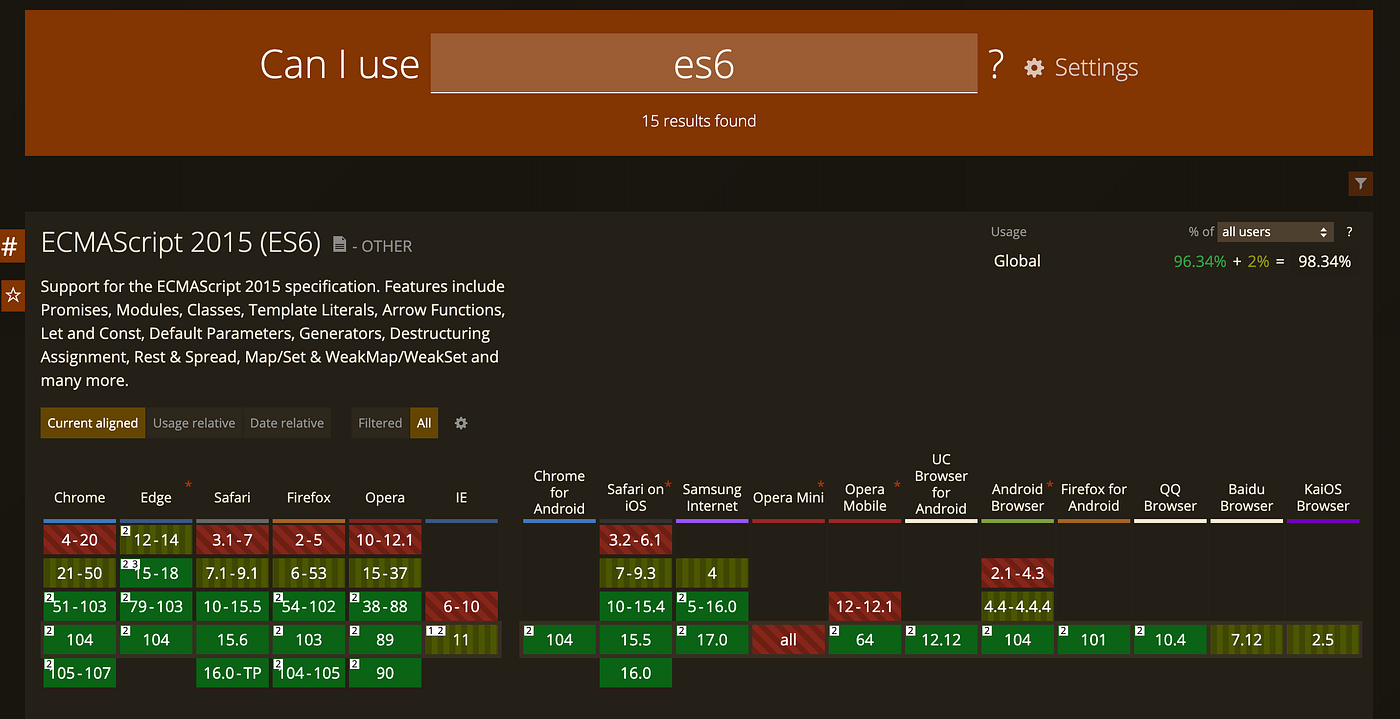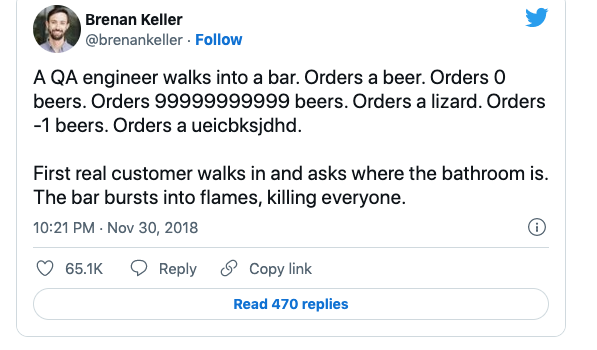(Editor’s note: This post about making it in the IT world is part of Dispatches Tech Tuesday series.)
A lot of people immediately think of information technology when they need to find an internationally viable profession that will make money. There are some myths and some truths around this topic, however. Let’s look at some and try to see which have some truth in them, and which less so.
IT pays a lot of money
Compared to what most of the Eastern European people earn, it is completely true. Even compared to Western European or American average salaries, software engineers are pretty well off. I am in Germany, so I am going to look at the German data.
According to a service called Payscale, the average compensation for a software engineer per year is currently around 56,000 euros.

Compared to some other professions — such as a teacher (45,000 euros), waiter (21,000 euros), accountant (39,000 euros), it does indeed look more lucrative.



Compared to real high-flying jobs, like lawyer (105,000 euros) or neurosurgeon (130,000 euros — a notable rock star of the job market), it looks way less so.


However, it takes years and lots of special skills to educate a surgeon. Granted, a software engineer is also a very skilled job, but there’s a very different scale of responsibility.
When a software engineer makes a mistake, a program crashes. When a neurosurgeon makes one, a person dies.
Also, a lawyer or an accountant have way less chances of being, so to speak, internationally convertible. Laws and rules are very country and language-specific, and IT is probably one of the very few professions that have English language as an accepted industry standard.
There’s a pretty big “but”, however.

This profession is very dependent on the level of experience. The gap between an entry-level engineer and an experienced one comes up to 39 percent.
It means that while you might earn quite well eventually, it probably won’t happen initially. And “eventually” is a long time when trying to start a new career path later in life.
If I can’t be a developer, I will do testing … it’s easier.
© https://twitter.com/brenankeller/status/1068615953989087232
While the salary data for a Quality Assurance Engineer does look fine — not great but fine, there are a couple of catches here.

Catch No. 1
Some people imagine QA Assurance as a job where one needs to just click through some buttons and see that the application works as described. But in reality, more and more of QA Assurance jobs assume test automation skills.
This means scripting the tests, writing test cases and setting up testing pipelines. It’s software development, but on a narrower scale. So the learning curve is practically the same.
Catch No. 2
Many companies stop hiring QA Engineers — they just use software devs to test their own code. You won’t find quality assurance jobs on Elastic’s website, for example. It’s a little bit of a controversial question, actually. There’s a question on Quora asking why some companies don’t hire QA Engineers, and the “Related questions” panel showing up on that page is also pretty telling.

It looks, therefore, as if the QA Engineer job isn’t much easier, pays significantly less, and also has some doubts of surviving at all in the nearest future. So I’d say that “going into testing” option isn’t too strong.
Getting an IT education is quick and easy … there’re so many free online courses around!
The two sentences above are painful to read. Because one has nothing to do with the other.
As a person who took a fair share or courses on Coursera, Udemy and Codeacademy, I can subscribe to the truth of the second statement.
Indeed there are a lot.
However, when I took all those courses, I already had a Master’s degree in Computer Science and my English was already very, very advanced.
You can say that there are more courses in local languages now. But English is still the industry standard; it’s practically guaranteed that you’ll need this skill during the interview stage.
Also, trying to acquire a new profession based on the set of free courses is a bit like teaching yourself swimming, based on watching instructional YouTube videos. You can maybe perfect your technique a bit, if you can swim already and just want some pointers to become a little faster, a little more efficient. But if you are a complete beginner and you have only seen instructional videos, it’ll be a disaster when you go for a dip in the real water.

You might be better off with something like Learning Paths, or Career Paths, or Specializations — many MOOC platform offer them under different names. Like a Front-End Engineer Career Path on CodeAcademy. Specializations are curated sets of courses, designed to get you from zero to hero on some concrete topic, or some concrete job in this case. Mostly, though, they’re not free, nor lightning fast (this one for a Data Science engineer for example is 8 months) and require a fluent English level and some pretty advanced computer skills.
Also, none of the MOOC platform will help you with the job search directly, though of course having a certificate will make your CV a bit more marketable. You will still have to show the goods during the interview, though, so real computer experience is more valuable than a degree. And this requires practice. And practice, alas, means precious time.
Backend engineer is complicated and QA is a dead end … I will be a frontend developer!
While the demand for Frontend Engineers is as high as it’ll probably ever be, there’s a hell of a learning curve there. The times when you needed to “just” know HTML, CSS and a bit of JavaScript are long gone. Which you might have also gathered from articles like 10 Best Javascript Frameworks to use in 2022 or Top Javascript frameworks 2020 or 12 Best JavaScript (JS) Frameworks You Should Know… or similar.
TLDR: we live in an era of JavaScript frameworks. There’s a lot of them.
And they constantly change.
This alone should fill you with dread, and it’s not a joke. But if it doesn’t, I’ll throw this into the equation.

If you have no idea what this is, no worries – I am here to tell you. This is a compatibility table, showing whether different browsers (with different versions) work with a particular technology.
Frontend developers work with the frontend, which is the part of the application a user sees. In modern reality, these application are mostly websites, displayed by an application called a browser. All the user-facing applications have a set of requirements related to browser support — this means they are declaring “our application will work with the major browsers X, Y and Z up to versions A, B and C”.
It means that everything you write will have be tested in those browsers and those versions, which of course multiplies the effort accordingly. And, no surprise here, the browsers change and evolve, too, but often not with the speed the language or framework features appear.
The takeaway here is that becoming a frontend engineer might have bright prospects, be no less lucrative than backend development, and if it’s something that really sparks your fire, then it’ll also be a pretty exciting journey.
But the learning curve here is arguably one of the steepest.
I will easily find a job if I just get an education
There are a lot of jobs in the IT industry. I am besieged by recruiters, and I try not to visit LinkedIn.com too often because I just can’t process recruiting mails.
But as you might have guessed, there’s one little catch.
I’ve been working as a software engineer for 20 years. (And no, I won’t tell you how old I am. Let a woman keep her secrets.)
If you’re the one fresh from the bootcamp, the situation turns the other way around. You will be sending resumes, and get no responses. You will knock on doors, and receive templated rejections. You will scour the job aggregator websites and look for jobs, and come up empty.
© Image from Giphy.com
Yes, the companies want developers, and QAs, and UI/UX specialists, and product managers, and SREs, and whatnot. But mostly they want seniors, or at least mid-level professionals.
No one tells you how to get this experience that will get you to mid-level if you can’t even get a foot into the door.
In the meantime, the same door will be pounded on by a pool of other candidates. The bright, happy-eyed, fresh-out-of-university, new and full of enthusiasm.
They will be younger.
They will be less hungry whereas you will have dependents to support.
They will be blissfully family-free and therefore ready to work overtime.
They will do it for kicks; you will have to feed your family.
They will have unlimited energy and you? Well, hopefully you will have some.
You will need it.
I am not saying it’s impossible, mind you. Stranger things have happened. And I truly think that almost anything is possible for a really determined person who has a goal in sight. Especially if the person has at least some real interest in the journey too, and not just the goal.
But it won’t be easy, and it won’t be quick.
Maryna is a software developer from Ukraine who now lives in Germany. Maryna also writes a programming blog to share her knowledge. She sometimes speaks at conferences, though being an introvert, writing comes more naturally. She says she’s not a professional writer but writing is something she likes, “and I think I can do it pretty well.”















